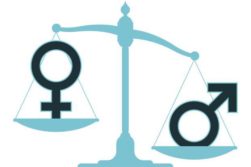Source of article The Jury Room - Keene Trial Consulting.
 If you are not a judge, this finding may not surprise you. Based on this research, some judges will likely be surprised (or simply think the research is faulty) and others will nod in agreement. The researcher makes this statement:
If you are not a judge, this finding may not surprise you. Based on this research, some judges will likely be surprised (or simply think the research is faulty) and others will nod in agreement. The researcher makes this statement:
“Judges tend to believe that their vast amount of legal training and logical thinking skills make them immune to these mistakes. This research is showing that judges are not as immune as maybe they think they are.”
For many of us (including many sitting judges), bias is incongruent with how we see ourselves. Yet, we are all socialized and acculturated into belief systems and assumptions that result in our reactions being biased at times. Judges are no exception to this reality.
Interestingly enough, this study was requested by “a group representing trial court judges” who wanted to know if “their own decision-making was affected by biases that could contribute to social disparities”. (As an aside, while the research was conducted in Illinois, it is unclear if the sample of judges was also from Illinois. The study was “sponsored by the state supreme court in the state in which the 619 sitting judges lived” (and it is never made clear if that state was Illinois). Judges were compared to a “layperson sample” of 504 adults solicited through an online research portal. The layperson sample was from all across the United States.
The study asked judges about their legal experience in-depth and then had judges with experience on specific types of cases review case summaries on either child custody (372 judges reviewed these summaries) or on workplace discrimination involving family caregiving (514 judges reviewed these summaries). All judges were given case summaries with the same case facts. The only thing that varied were the race and gender of the parties involved (which should be irrelevant to decisions made). Following decisions on the cases, judges completed measures of gender and racial attitudes (racial attitude analysis will be published later). The “layperson sample” completed the same case reviews (they were screened to ensure they had no experience in these sorts of legal decisions) and made their judgments on the cases.
Here is what the researchers found as they compared judicial decisions to laypersons decisions on both child custody and workplace discrimination cases:
In the child custody case, judges were more likely than the laypeople to give a mother more time with their children than they gave fathers. The more the judges had traditional gender role ideologies, the more likely they were to grant mothers more time than they granted to fathers.
In the workplace discrimination case involving family caregiving, the gender of the plaintiff affected judges more than it affected the laypeople. While both judges and laypeople thought the female Plaintiff’s case had more merit than the male Plaintiff’s (identical) case, judges were more likely to rule against the female Plaintiff when they had more traditional gender role expectations for men and women.
Further, judges with more experience in family law tended to make more biased decisions than those judges with less experience in family courts.
Specifically, the study found that “In cases where expertise made a significant difference, it was associated with more gender bias not less”. It is important to note that this study showed a correlational relationship and not a causal relationship. We do not know why the statistical relationship existed, we simply know it did exist in this particular sample of judges. The researcher notes further work needs to be done.
From a litigation advocacy perspective, this study has been long needed. It is another study showing that judges are human like the rest of us—and like all of us, are in need of greater enlightenment, as well as the need for awareness of their own leanings. Bookmark this one for possible use.
Miller, AL (2018). Expertise fails to attenuate gendered biases in judicial decision-making. Social Psychological and Personality Science.

